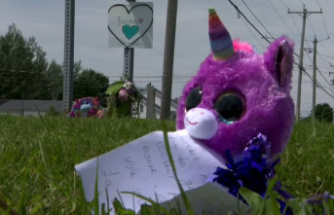In exploratory talks for a possible Jamaica coalition, an influential lobbyist is also sitting at negotiating table for FDP. In a working group on issues of climate and energy policy, Liberals sent former secretary of state for Economics and Energy, Stefan Kapferer. He is a FDP politician and at same time chief executive officer of BDEW, most important energy association in Germany.
Kapferers Energy-political competence is undisputed: he already worked under Philipp Rösler (FDP) as state secretary in Federal Ministry of Economics and, among or things, was responsible for energy policy. After a brief stopover at OECD in Paris, he has been leading BDEW since May 2016. Around 1,800 companies are represented in association, including Stadtwerke, major energy companies such as RWE and ExxonMobil, but also wind farm operators. He is considered an influential lobby association in political Berlin.
The fact that FDP invites Kapferer to talks is regarded as an unusual process, because usually only full-time politicians participate in exploratory rounds. It shows how hard it is for party to find and engage in talks after four years of non-parliamentary opposition. It is precisely energy sector with questions about coal exit, future of Ökostromförderung and electricity tax is highly complex. For FDP, too few politicians seem to be able to negotiate se issues competently.
The FDP made it clear in evening that Kapferer had no negotiating mandate for FDP. His participation in talks on energy policy successes at express suggestion of Federal Chancellor Angela Merkel and at invitation of Chancellor Chancellery Peter Altmaier. "Mr. Kapferer is a member of FDP, but he has no negotiating mandate from our party." Energy policy participants of FDP were Bundestag MEP Hermann Otto Solms and North Rhine-Westphalia Minister of Economics Andreas Pinkwart.
Similarly, BDEW himself had previously said: "It was wish of all negotiating parties to draw up independent expertise in today's exploratory discussion in order to contribute to clarification of factual behaviour. The BDEW is, of course, available to all parties with its all levels of value creation and energy policy expertise. The energy policy decisions to be taken are still solely responsibility of probing parties. "
Memory of "Mövenpick Party"At beginning of black-yellow government 2009/10, FDP had to take nickname "Mövenpick Party" because it received a million donation from hotelier August von Finck, a co-owner of Mövenpick Hotel group. The n federal government, as one of first measures, lowered value added tax on hotel nights.
This interactive presentation cannot be displayed with your browser. Read overview of negotiating union, FDP and greens in an optimized version.The Union and Greens sent only politicians and officials to Working Group on energy and climate issues. For Union, ex-environment minister Altmaier and NRW-head of government Armin LAX and CSU-environmental expert Georg Nüßlein sat at negotiating table, for Greens party chairmen Simone Peter and Anton Hofreiter and Kapferers successor in Ministry of Economics, Rainer Baake. In addition to Kapferer, Hermann Otto Solms and NRW economics minister Andreas Pinkwart were re for FDP.
Controversial among potential coalition is particularly how Germany aims to achieve agreed climate targets für2020 and 2030. The Greens demand Einenzügigen exit from brown coal, union and FDP see coal exit critical. The BDEW, by way, also – as your chairman Stefan Kapferer had just said in a statement last week.
Date Of Update: 03 November 2017, 12:02









